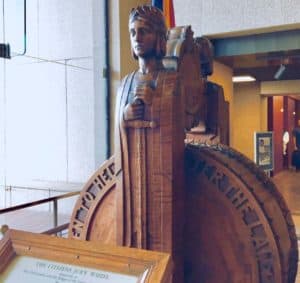 A judge presiding over case involving the SEC and private messaging company Telegram has ruled that the SEC can ask deposed executives questions about how they have been disposing of $1.7 billion USD raised in 2018 to fund construction of the Telegram blockchain.
A judge presiding over case involving the SEC and private messaging company Telegram has ruled that the SEC can ask deposed executives questions about how they have been disposing of $1.7 billion USD raised in 2018 to fund construction of the Telegram blockchain.
The SEC cannot, however, demand immediate production of bank records. The judge has once again asked Telegram lawyers to produce a schedule for revealing the banking information in a manner compliant with local privacy laws.
Innercity Press covered the conference call and reported that Telegram lawyers asked for 5-7 week to produce the bank records, which relate to investors residing in 12 jurisdictions.
The SEC has asked to see Telegram’s bank records so it can determine whether the funds of 170 investors are being used to promote Telegram’s TON blockchain and GRAM tokens.
The information is material, the SEC says, because it may show to what extent the “efforts of others” feature of the Howey Test could apply in the Telegram case.
According to the regulator, Telegram, “paid commissions to purchasers who were buying Grams to resell to other investors…which would render them statutory underwriters (such that Telegram’s offering would not qualify for an exemption).”
On January 9th, Telegram lawyers issued a letter (appended below) arguing that the bank records are irrelevant in the case because they, “simply do not bear on that question, nor do they reveal anything about what purchasers may expect or have been led to expect, by Telegram or anyone else.”
The $1.7 billion Telegram raise was conducted in early 2018 to fund development of TON, Telegram’s multipurpose blockchain system with, “a built-in Telegram messenger, tools of payments using Gram cryptocurrency, data storage tools and an operating system for decentralized apps.”
The TON blockchain was scheduled to be launched October 31st, 2019, and the GRAM tokens released to “purchasers” on that date also.
But the SEC threw a spanner into the works when it issued emergency orders October 11th prohibiting the secondary sale of GRAM tokens in the U.S.
The SEC claimed at the time that the defendants had failed to properly register the offering as a sale of securities, and SEC Co-Director of Enforcement, Stephanie Avakian claimed that the company planned to “flood” the U.S. with these unregistered instruments:
“Our emergency action today is intended to prevent Telegram from flooding the U.S. markets with digital tokens that we allege were unlawfully sold…We allege that the defendants have failed to provide investors with information regarding Grams and Telegram’s business operations, financial condition, risk factors, and management that the securities laws require.”
The SEC also says that Telegram has issued far more GRAM tokens than would ever be needed to provided “utility” access to its forthcoming network.
Telegram is contesting the emergency orders and company personnel and contractors, including CEO Pavel Durov and UK citizen John Hyman, whom Durov has described as Telegram’s “chief investment officer,” have been deposed.\

